Democratic Republic Of Congo
Felix Tshisekedi Tshilombo, one of the leading opposition candidates vying for votes in Sunday’s presidential election in the Democratic Republic of Congo (DRC), says he will not try to compete with his father’s reputation.
The 55-year-old father of five is mostly known for being the son of the late veteran opposition leader Etienne Tshisekedi.
Etienne Tshisekedi’s legacy
Felix Tshisekedi’s father founded the Union for Democracy and Social Progress (known by its French initials UDPS) in 1982, and was a feared rival of dictator Mobutu Sese Seko, who died months after being ousted in 1997, and later of Presidents Laurent and Joseph Kabila.
Under his leadership, the UDPS became the country’s largest opposition party, but he never succeeded in winning office.
His legal challenge to the official results of the 2011 presidential election, which showed he won 32 percent of the vote to Joseph Kabila’s 49 percent, failed.
Natural successor?
The veteran opposition leader died in 2017 leaving a big question over who would succeed him.
Etienne’s former chief of staff Albert Moleka says his son was not necessarily the obvious choice.
“Etienne Tshisekedi was very vocal about his scepticism towards his son’s abilities. He was very demanding of his son,’‘ Moleka told the BBC.
“He was someone who fought for the people and so he wasn’t going to give his son a free pass.”
Moleka said it was the presidential hopeful’s mother, Ms Marthe Kasalu, who pushed for the son to become the leader.
In March this year, he was voted in as the party’s new head and became its de facto candidate for the presidential elections.
Felix Tshisekedi’s credentials
But Felix did not simply cash in on his father’s name. He has been immersed in politics from a very young age, and the aspiring president had to work his way through the party.
He also had to suffer the consequences of his father’s political activism.
When the UDPS was created, the Tshisekedi family was forced into internal exile to their home town in the central Kasai Province.
They stayed there until 1985, when President Mobutu allowed the mother and children to leave.
Felix Tshisekedi then went to the Belgian capital, Brussels. After completing his studies there he took up politics, working his way through his father’s party to become national secretary for external affairs for the UDPS, based in Brussels.
“He made powerful friends and allies among the diaspora there, but he was sometimes overlooked, and so it wasn’t easy for him,” said Moleka.
“Felix has always shown a lot of willingness. He’s courageous but his problem is that he needs to figure out what his ultimate goal is.”
For now, the presidential hopeful is attempting to represent change for DR Congo, which has not known a peaceful transition of power since independence in 1960.
“I don’t have any ambition to rival my father. He is my master, and you don’t rival the master,” Felix Tshiskedi said.
“But I’m going to try my best to perpetuate his dream, his dream of a country of rule of law, of a better Congo, where our sons and daughters can flourish, that’s what I am pursuing.”
ALSO READ: Background to DR Congo’s delayed 2018 presidential pollsFelix’s grand plan for DRC
If elected on Sunday, Tshisekedi has said he will make the fight against poverty a “great national cause”.
He aims, for example, to increase the average per person income to $11.75 a day, compared to $1.25 today.
“It’s really the minimum we can do I think, and the minimum people expect from us,” the candidate told the BBC in an interview in the capital, Kinshasa.
He says his programme can be accomplished over two presidential terms – a period of 10 years – and will cost an estimated $86 billion.
When presenting his programme during a press conference, the candidate was pressed about his lack of experience.
“It’s true I don’t have experience in bad governance or in the pillaging of my country,” he responded, “but I do have experience in the respect of human rights and civil liberties.”
Can a divided opposition unseat Kabila’s government?
In recent months, opposition parties in the DR Congo, including the UDPS, had said that they would pick a joint candidate for the election to increase their chances of defeating the governing party.
There is only one round of voting and the candidate with the largest share of the vote wins, therefore a split in the opposition vote could prove disastrous for them.
But after the opposition parties made the decision to pick Martin Fayulu as the unity candidate, Tshisekedi backed out and decided to run.
He was supported by Union for the Congolese Nation leader Vital Kamerhe, who is his running mate.
READ MORE: Tshisekedi, Kamerhe assure supporters of victory on return to DRCAlthough Tshisekedi argued he was simply following the wishes of the party base, many in the country have criticised his decision not to support Fayulu.
“We are living in dangerous and unstable times but at the same time there is a strong desire of the population to have these elections, because people are really fed up with this regime, installed since 1997, that has brought its load of violence, incredible violence.”
In order to become president, something his father never managed to do, Tshisekedi must convince opposition supporters that he is the candidate best placed to capitalise on that feeling as well as overcome the power of the governing party.
ALSO READ: Kabila’s candidate unveils manifesto ahead of Dec. polls



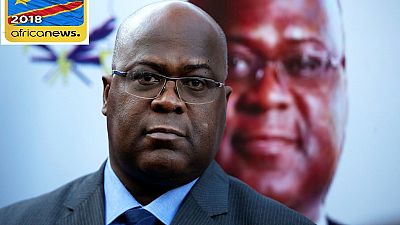



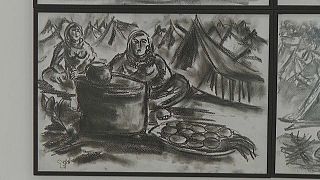
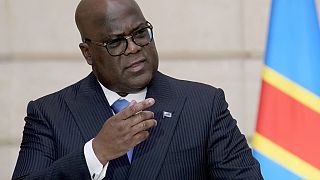
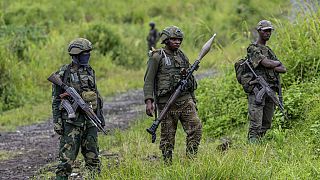
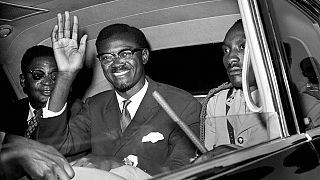

Go to video
SADC extends mandate of its troops in DRC and Mozambique
01:16
Ugandan opposition politician kidnapped and jailed, his wife says
01:08
Mozambique: Opposition leader Venancio Mondlane faces legal action
00:58
Somaliland opposition leader wins presidential poll
01:10
Senegal parliamentary elections: Polls open, over 7 million expected to vote
01:10
Voters head to polls in Somaliland as leaders hope for global recognition